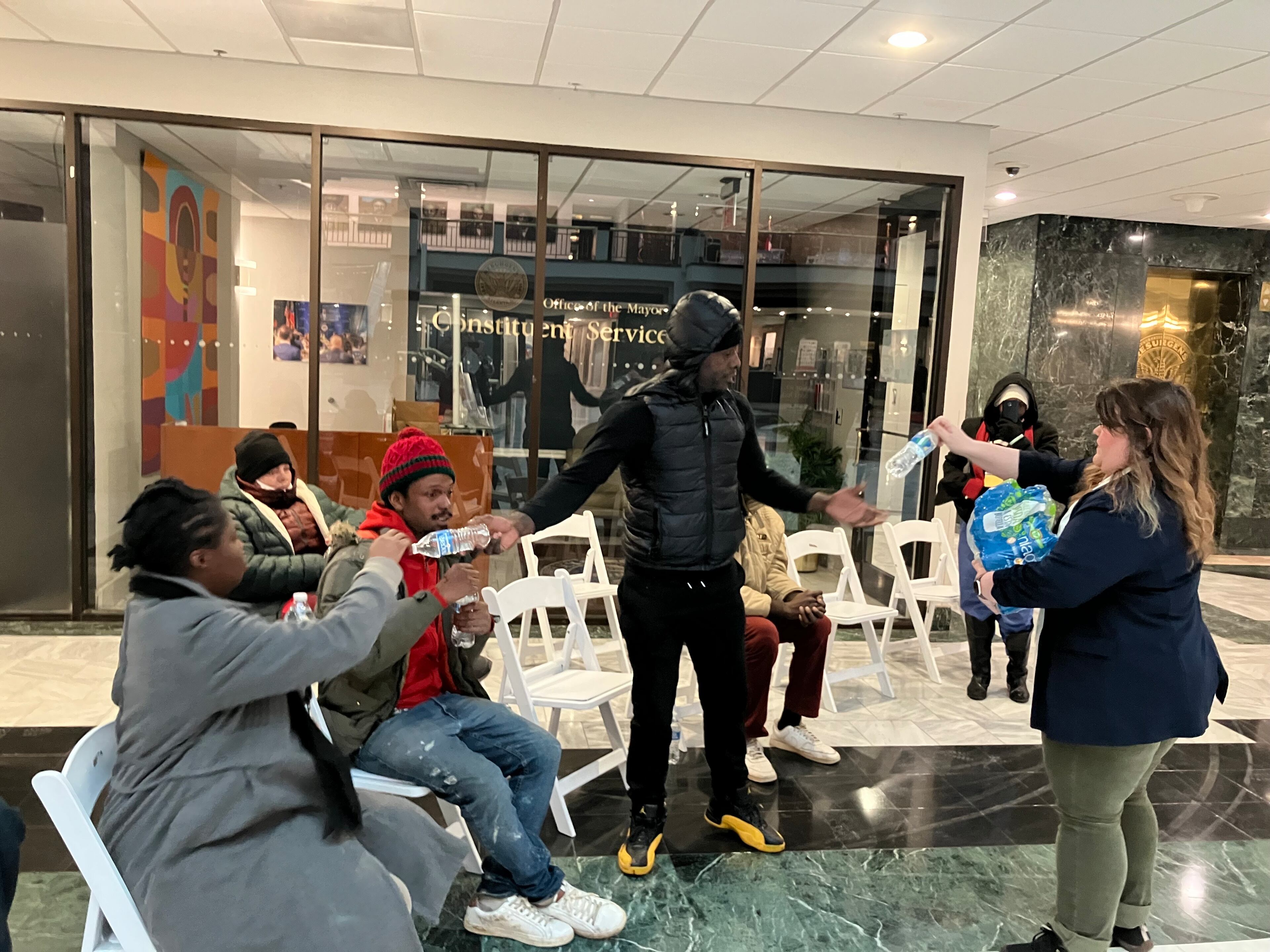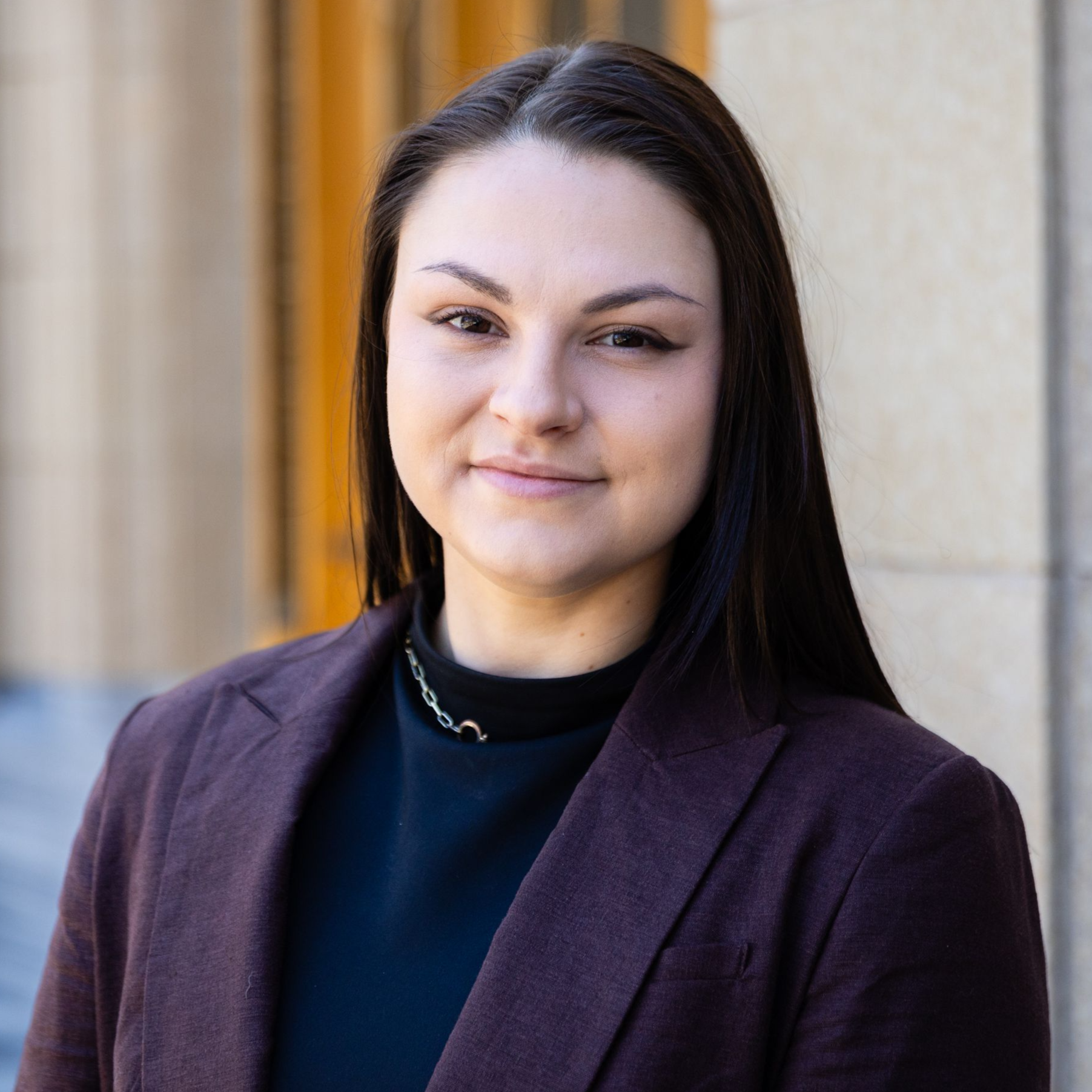Confusion about warming centers happens during homeless count

Questions and confusion about how the city of Atlanta’s warming centers operate surfaced this week, as volunteers fanned out across the metro area to take their annual head count of people without housing.
Rev. Siegfried White, an Atlanta minister who regularly transports unhoused people to warming centers, went to Atlanta City Hall Tuesday, along with a half-dozen people experiencing homelessness, to express frustration that warming centers had been closed on Monday night. City officials offered bottled water, food and other services to the group.
White said in an interview that he took a vanload of people Monday night to two places where he thought warming centers would be open, only to find that they were not.
“There need to be more emergency shelters open, and these homeless people are human beings,” White said Tuesday morning in an interview outside Gateway Center in downtown Atlanta. “They need to be treated as human beings.”
Meanwhile, Atlanta Council member Liliana Bakhtiari has urged the city’s Office of Inspector General to conduct an audit of the warming center operations.
In a letter dated Jan. 17, Bakhtiari requested that Inspector General Shannon Manigault review the city’s warming centers’ “operational efficiency, resource allocation, and overall effectiveness.”
”I believe that a thorough examination will contribute to the continuous improvement of the City’s ability to provide effective support during adverse weather conditions,” she wrote. “Transparency and accountability are essential in ensuring that our community members receive the best possible assistance when they need it most.”

Also Monday, Atlanta City Council members approved $2.4 million in funds to help house people taking shelter from the cold under bridges and overpasses, as well as $700,000 for the Gateway Center’s shelter services.
A spokesperson for Mayor Andre Dickens said the city “deactivated” its warming centers on Monday at 10 a.m. because it was the first day the weather was too warm to meet the threshold for having them open.
The city’s policy is to activate special warming centers under certain weather conditions or forecasts. The triggers include when overnight temperatures are expected to fall to 35 degrees or below for at least five hours; when temperatures reach 32 degrees or less along with an 80 percent or greater chance of precipitation; or if there is expected to be snow accumulation of an inch or more sticking to the ground in most locations.
In the last bout of colder weather, the city opened a warming center Jan. 12 and kept it open through Monday mid-morning, with a second and, eventually, a third center added to handle the demand.
Temperatures Monday night into Tuesday remained in the 40s and dropped no lower than 41 degrees, according to the National Weather Service, with .03 of an inch of rain measured at Hartsfield-Jackson Atlanta International Airport.
Those were the conditions under which more than 200 volunteers blanketed the city to get an idea of the size of Atlanta’s homeless population with an annual count that plays a large role in federal dollars municipalities receive to fight homelessness.
They looked in parks, in lots between apartment buildings, under viaducts and at abandoned properties.

Paran Pordell spoke calmly as she ran through a list of questions whenever one of the homeless agreed to be surveyed. With a broad smile on her face and lots of eye contact — a key component of creating trust — the Centers for Disease Control & Prevention worker assured them that they didn’t have to respond to questions with which they were not comfortable.
“How long have you been living on streets,” she asked a man named Malik. “Do you remember your last permanent zip code? Are you comfortable with sharing your sexual orientation? Do you identify as Black American, African American or African?”
The majority of people answered happily, engaging volunteers with stories of how they became homeless.
There was at least one tense moment for the members of volunteer Team 7. They approached two men hunkered down for the night in front of a check cashing store, when an unhoused female began shouting at one of the men not to talk to the team. She struck him after he started talking to a volunteer. The man then pulled out a knife and warned the woman that he would use it if she touched him again.
The volunteers quickly left the confrontation in hopes that it would help de-escalate the situation. The two calmed down after the volunteers walked away.
“That happens sometimes,” said volunteer Alex Romeo, vice president of operations strategy at the Federal Reserve in Atlanta. “Let’s hope they are able to calm down.”





